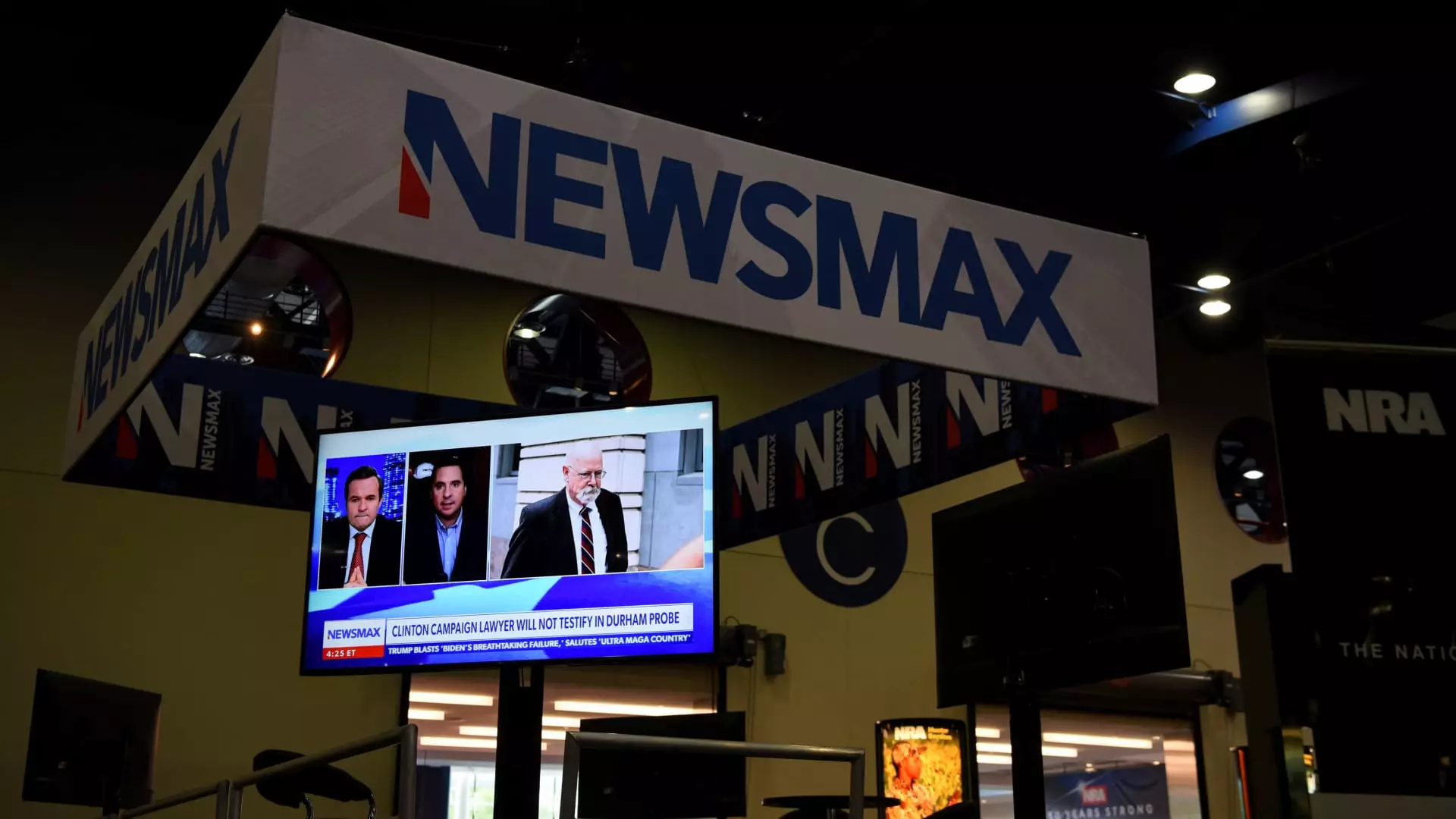In a shockwave felt throughout the financial world, Newsmax, a conservative news network, witnessed an extraordinary drop of over 70% in its stock value mere days after its market debut. This decline, marked by a staggering 77.5% nosedive, serves as a potent reminder of the volatility and fragility that can characterize the stock market, especially for companies riding the wave of political sensationalism. Initially, the network’s stock had soared by an astonishing 2,230%, momentarily elevating its market capitalization to approximately $30 billion and placing it in a competitive position against major players like Warner Bros. Discovery and Fox Corp. However, as the adage goes, what goes up must come down—often with a vengeance.
From Mainstream to Meme: The Speculation Phenomenon
The rise and fall of Newsmax brings to light the peculiar dynamics of retail investment in today’s media landscape. Utilizing a Regulation A offering, Newsmax bypassed the conventional route of public offerings, appealing directly to a retail investor base. Approximately 30,000 individuals jumped at the chance to buy shares, enticed by the rabid discussions in online forums that likened the stock to the infamous “New GME.” The comparison to GameStop isn’t merely a catchy phrase; it underscores a trend where retail investors, driven by social media buzz rather than solid fundamentals, chase fleeting investment opportunities. The financial world witnessed a similar phenomenon two years ago when speculative trading turned meme stocks into emblems of a new investment approach, drawing attention away from more traditional strategies.
Media Ratings vs. Market Realities
Despite its rapid rise and the ensuing crash, it’s crucial to dissect the underlying metrics of Newsmax’s performance. Though it enjoyed surging viewership ratings during Trump’s presidency, it remains a shadow of Fox News, often ranking below it in terms of audience engagement. Current Nielsen statistics indicate that while Newsmax holds a respectable position in the realm of cable news, hovering around the top 20 in viewership, attracting investors on the basis of ratings alone is a precarious strategy. The truth is that consistent viewership doesn’t always translate into financial stability or a robust stock price, especially when that viewership is highly polarized.
The Consequences of a Shallow Market Float
Another significant factor contributing to the startling volatility of Newsmax’s stock is its surprisingly limited float. With less than 6% of its shares available for public trading, the company essentially set the stage for intense speculation and rapid price fluctuations. Such a small number of shares inevitably leads to challenges in price discovery and can result in illogical spikes based on emotional rather than economic factors. This reality highlights just how precarious the standing of conservative media companies can be in a landscape dominated by powerful, entrenched players.
In the end, the saga of Newsmax is less about the triumph of conservative media and more about the risks associated with speculative investments that capitalize on political fervor rather than sustainable growth. As observers, we must remain skeptical of flashes of brilliance that lack solid grounding, learning instead from the tumultuous journey of this fledgling media enterprise. It is imperative for both investors and consumers to critically assess the narratives presented in the financial and media arenas, ensuring that we engage with a more thoughtful and deliberate approach.

